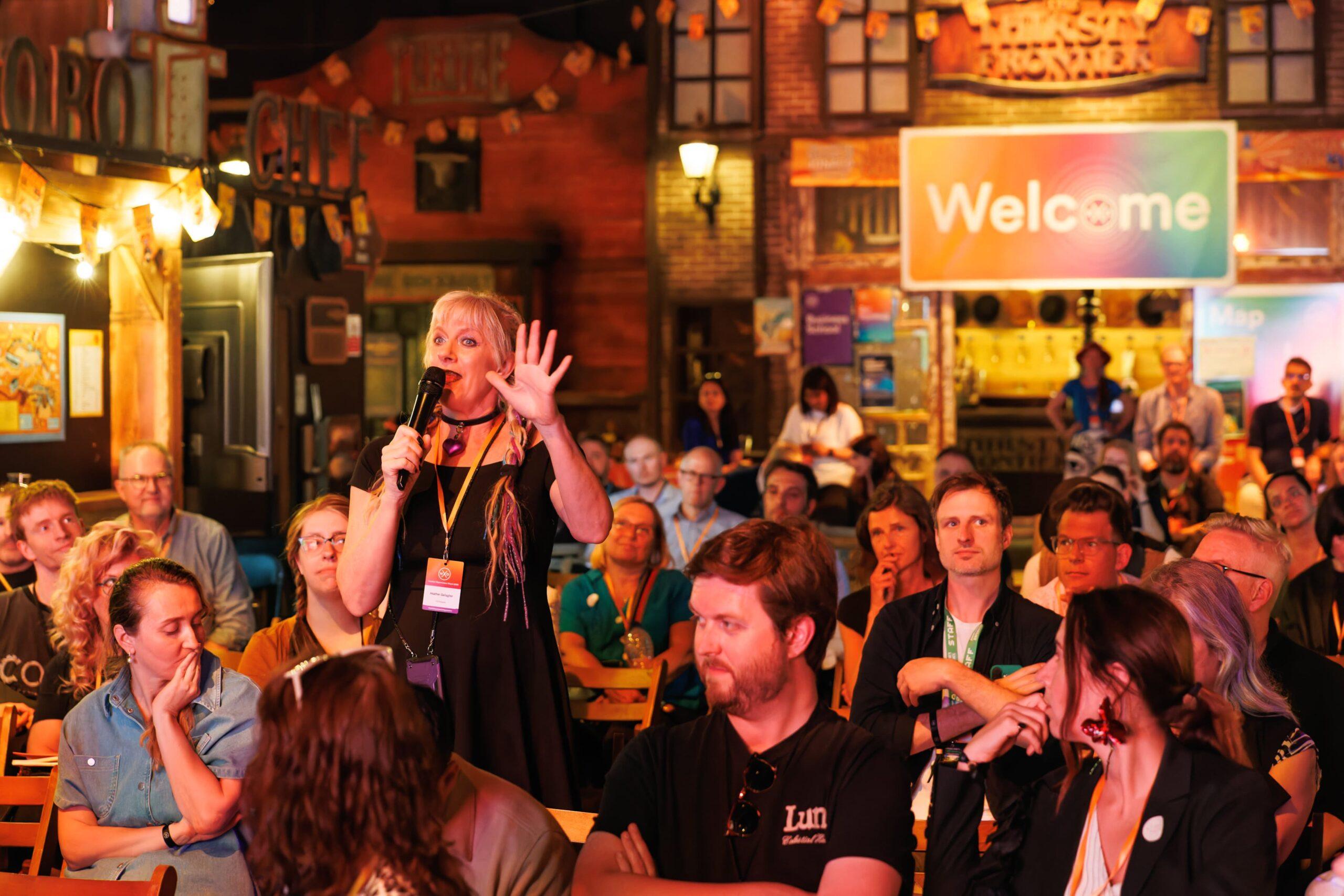Bad managers hurt people more than dragons do.
This is the mantra behind early-stage start-up We Are Succeed, which is set to positively impact the lives of 1 billion people by improving their leadership skills and those of the people around them by asking the question: how can measuring leadership make the world a better place – and improve companies’ profits along the way?
According to data provided by The Workforce Institute at UKG, managers have just as much of an impact on people’s mental health as their spouse (both 69%) – and even more of an impact than their doctor (51%) or therapist (41%). Turning more managers into true leaders is the path forward for a better world.
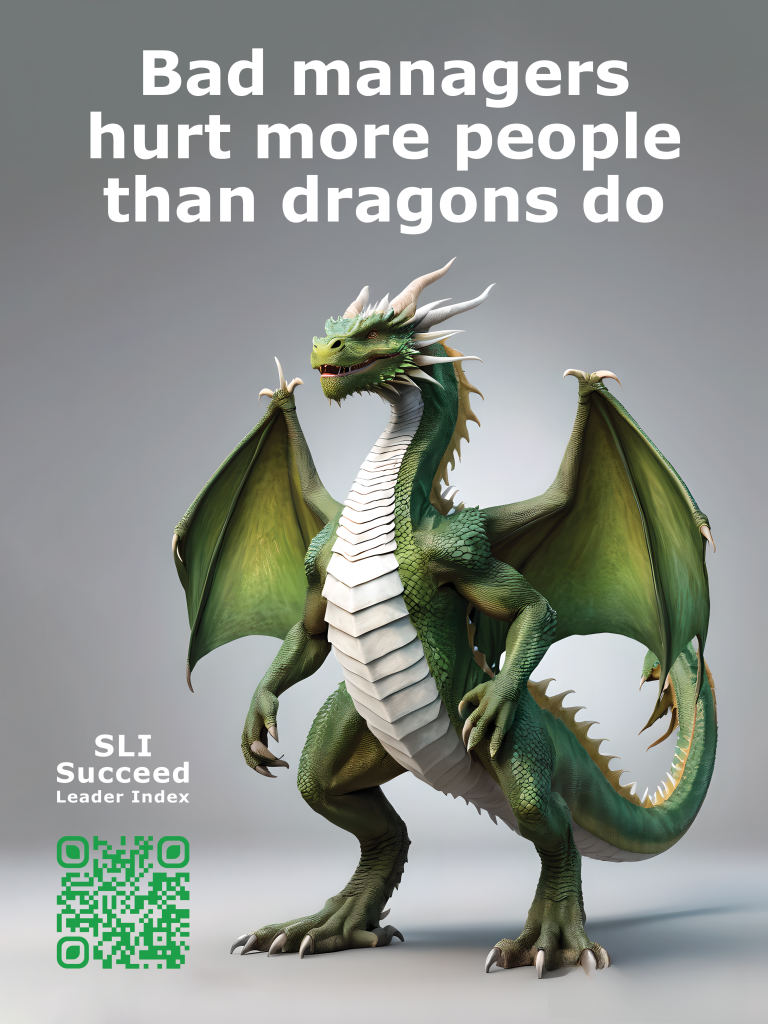
Leadership is undoubtedly a key differentiator for IKEA’s success. We Are Succeed’s CEO & Co-Founder, Jens Heitland led Innovation in IKEA Centres. Together with We Are Succeed’s Chief Product Officer, Claudia Ursulet-Popa, in this Campfire he unpacks what he learned about leadership during his time there – and how you can use the same tools to further both your business and your professional career.
They also share how they use the Succeed Leader Index and Succeed Leader Profile to deliver a personalised leadership education program at scale. If you’re into leadership education, customer experience, employee experience, team events, want to advance your career, or just care about the world, read on…
What Is Leadership – And What Sets Great Leaders Apart?
So what makes a great leader? Ursulet-Popa threw the question to our Campfire, who had a few thoughts:
“Inspiring people, bringing motivation, direction and purpose for what they’re setting out to do and what to focus on.” Joachim Meyer Andersen
“A great leader is like a chameleon: they can lead people from different cultures by changing their colours and approach accordingly.” Mike Gunawan
“An active listener who knows how to adapt to the need, and is confident to step in and give support to avoid leaving employees confused.” Skye Von
“I do leadership workshops. Last week I had a person who didn’t feel like a leader, as she was very introverted. But there are as many different leadership styles as there are personality types. It’s about authenticity.” Bernd Gibson
“Someone who knows your value and your superpowers.” Basil Shatrov
We often consider leadership skills as something that only managers need – but leadership and management aren’t the same thing. If you have the power to influence someone’s life or workload, you need to have leadership skills, whatever your job title: things like communication, adaptability, or integrity.
“Bad managers hurt people more than dragons do” because we’re more afraid of something imaginary than something that can really hurt us. And while studies and research have shown that good leadership can increase a company’s profits by 30%, a more human approach to leadership will create a better world.
Why Measure Leadership?

IKEA is a company that is built on its values. Most of the time, the people it chooses to employ fit those values, meaning that culture is driven from these values into the organisation and the leadership. For Heitland, this was a huge change from the corporate banking world he’d come from – he was given a personal coach to take care of him as a leader and help him to develop and grow.
IKEA also makes an effort to assess its leadership and internal culture, with each manager linked to those metrics, which are of course also used for personal and team development. However, these weren’t linked to numbers – and companies run on numbers. So Heitland asked: how can we replicate this system in an organisation, and give them numbers linked to their people and leadership?
The Succeed Leader Index (SLI)
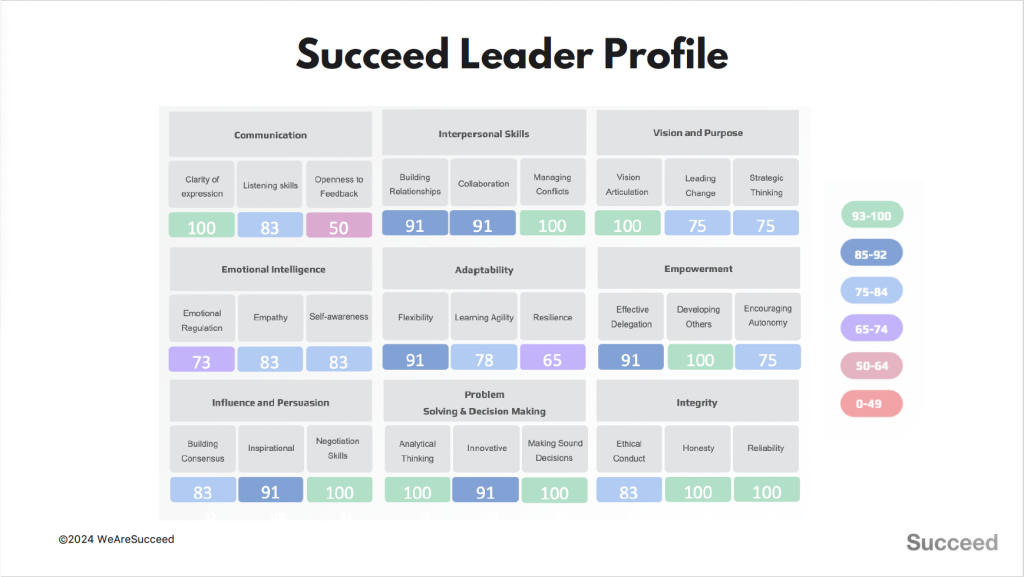
The first step to improve something is to measure it – so We Are Succeed have introduced the Succeed Leader Index (SLI), a series of leadership KPIs and a leadership accountability framework that measures actions and outcomes, not perceived competences.
The SLI takes the form of a self-assessment and a 360 assessment from your direct reports and managers, helping to address the perception gap between how you see yourself and how others see you and suggest actionable areas. Anonymity is guaranteed to encourage honest feedback.
The way that the questions are framed also reduces gender bias. According to a Harvard Business School report looking at the fictional characters of Heidi and Howard, while both were rated as competent, people liked Howard more. The same pattern occurred in the US military around competence and likeability. However, there’s no likeability bias when you’re objectively measuring something.
Questions focus on the behaviour of a good leader and how frequently the person displays them, such as:
- Do you actively listen to your team’s ideas and concerns?
- Do you ensure your instructions are easy to understand and follow?
- Do you make changes based on feedback received?
Leadership skills are broken down into 9 areas, aggregated into a total score and displayed in a dashboard that allows people to understand the data at a glance. An accompanying Succeed Leader Profile also gives a breakdown of score and anonymous feedback. Over time, these results can be measured so you can document your leadership skills across your career.
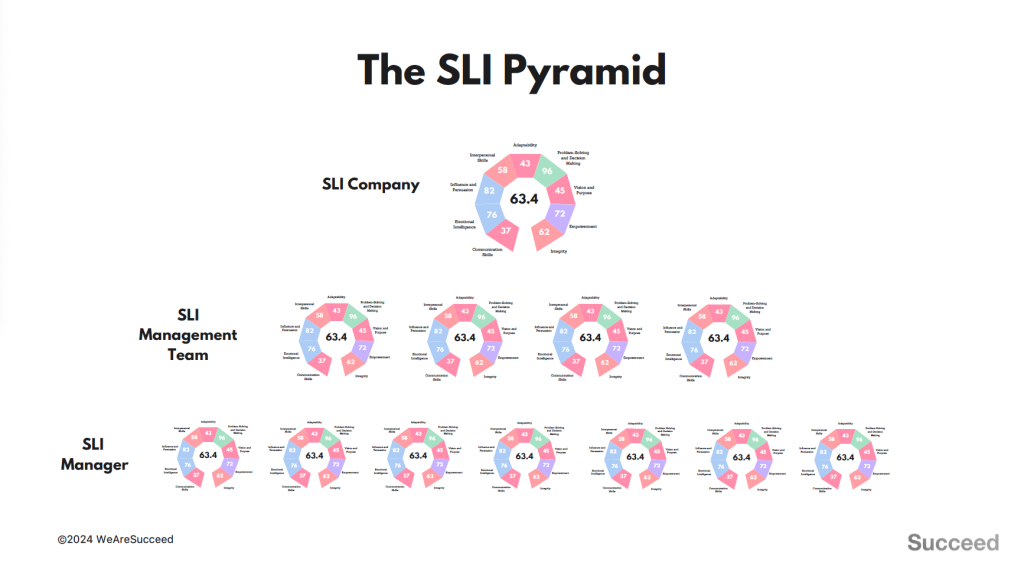
This dashboard can be created not only on an individual level, but also for management teams and the overall company to help understand the bigger picture and take actions. For example, if you found that you had a lot of one competence in Sales that was lacking in Marketing, you could build a buddy system rather than getting in an external consultant – or the results could be used to help a consultant build a development programme for these specific aspects.
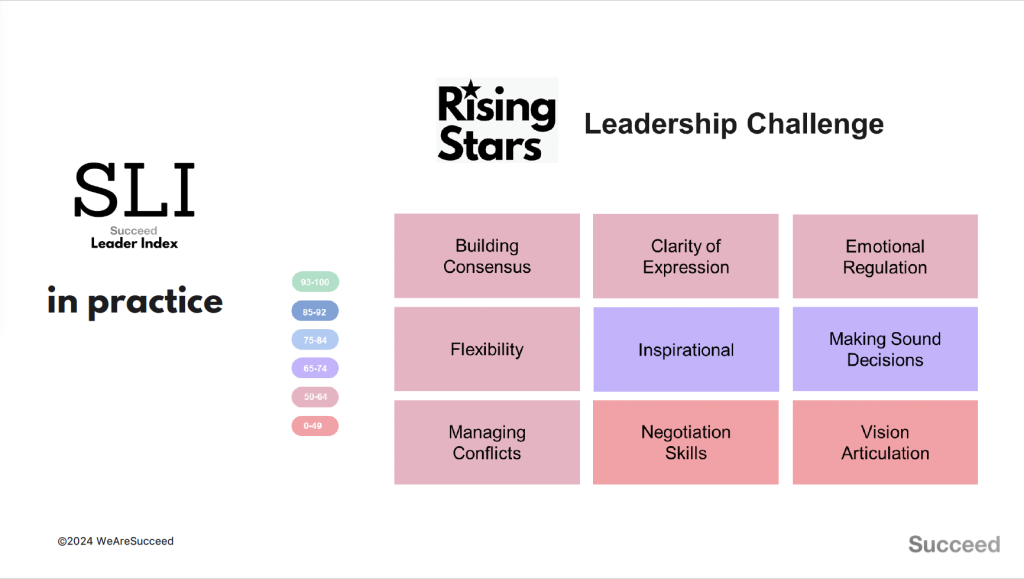
The results can also be used by leadership trainers, coaches or educators to see which aspects need strengthening. In a recent Rising Stars leadership challenge, We Are Succeed selected the bottom 9 skills and created a “bingo card”. Each skill had a different challenge to complete and be mentored through. People were also paired with an “accountability buddy” with complementary strengths, so they were never alone in the process. This allows to give a tailored, specific leadership programme for individuals, but at scale and at the same time.
The WXO Take-Out
We think the brilliance of this system is that numbers are a really useful way to get a sense of progress and where you’re standing and to improve – think of GDP, or Zagat for restaurants.
And while it can be hard to face up to your shortcomings, a number is a starting point that creates conversations and gets people moving. While measurement won’t fix the leadership problems in an organisation, it does provide development and learning opportunities and the chance to learn and improve from the clear feedback you receive.
So next time you’re designing an experience or leading a team, ask yourself:
- Think of the worst manager you ever worked with. What did he/she/they do differently? How did that make you feel?
- Think of the best manager you ever worked with. What did he/she/they do differently? How did that make you feel?
- What is leadership and what sets great leaders apart?
Want to come to live Campfires and join fellow expert experience creators from 39+ different countries as we lead the Experience Revolution forward? Find out how to join us here.



